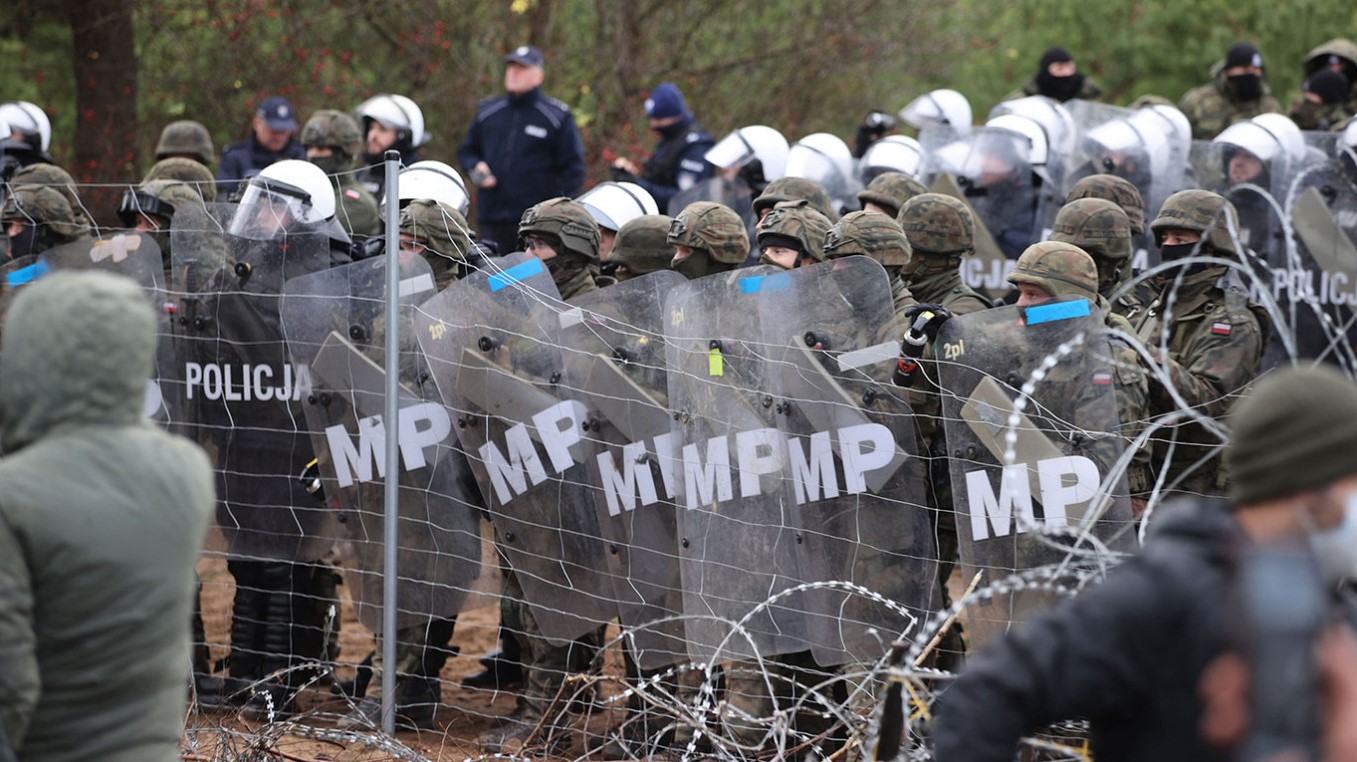KRG will continue effort to bring back migrants still stranded on Belarus border

ERBIL (Kurdistan 24) – Shortly after a group of hundreds of would-be migrants to Europe from the Kurdistan Region returned to Erbil on Thursday evening, Prime Minister Masrour Barzani announced that his government would continue efforts to facilitate travel home for others still there who request it.
Crowds of weary families and individuals poured off a flight from Minsk that night at Erbil International Airport (EIA).
Read More: Over 400 migrants on flight from Belarus touch down in Kurdistan Region's Erbil
“I'm relieved by the safe return of our citizens caught up in the border between Poland and Belarus,” Barzani said in a tweet, adding that “their stories will inform our efforts to ensure this doesn’t happen again.”
He also emphasized that the Kurdistan Regional Government (KRG) “will continue working with the federal government and partners to bring home all those who wish to return.”
The Prime Minister concluded with “I also thank our frontline workers, govt bodies and airport staff; NGOs, and volunteers for their support to the returnees today.”
I'm relieved by the safe return of our citizens caught up in the border between Poland and Belarus. Their stories will inform our efforts to ensure this doesn’t happen again.
— Masrour Barzani (@masrour_barzani) November 18, 2021
We will continue working with the federal govt and partners to bring home all those who wish to return.
Those departing the plane gave a mix of reasons for setting out on the dangerous journey, from Yezidis (Ezidis) who had been living in Kurdistan Region displacement camps since fleeing the disputed district of Sinjar (Shingal) when ISIS took over the area in 2014 to others who cited a lack of local job opportunities as their motivation.
While being interviewed by Kurdistan 24 at the airport, several of them gave a mix of reasons for setting out on the dangerous journey, from Yezidis (Ezidis) who had been living in Kurdistan Region displacement camps since fleeing the disputed district of Sinjar (Shingal) when ISIS took over the area in 2014 to others who cited a lack of local job opportunities as their motivation.